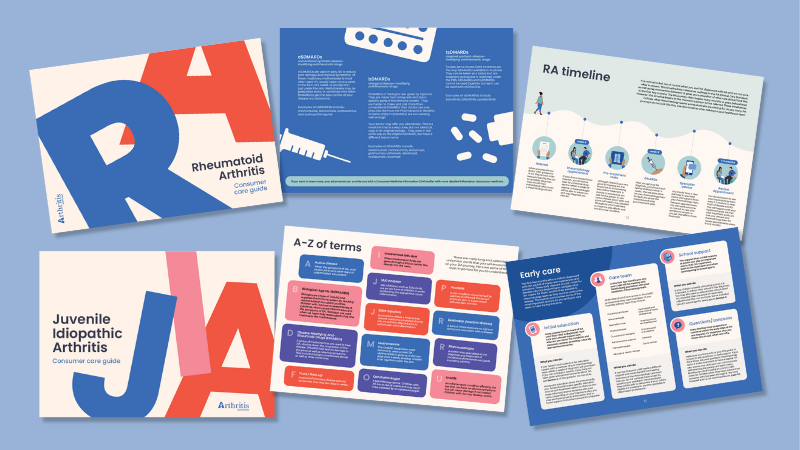How to Find A Peer Support Group
Have you recently been diagnosed with a chronic health condition? Have you had your condition for some time but feel you could use more information and support to help you manage it better? Do you care for someone with a chronic health issue?
If you answered yes to any of those questions, there is a good chance you will benefit from joining a peer support group.
Many people have a fixed idea of what they believe support groups to be like. Some may visualise structured meetings, exercise groups, online groups or just people sitting around whining about their ‘aches and pains’.
Support groups come in all shapes and sizes but they share many common features, such as:
- Being a place where people with similar conditions can connect so they feel less isolated.
- Providing the opportunity for people to learn more about their condition and various treatment options.
- Allowing members to share their experiences and provide support to others.
Types of Support Groups
Support groups can be run by health professionals, community groups or individuals. Groups can be categorised not only by who runs them but also where and how they are run. They can be conducted:
- In person: These can be held at dedicated venues or in public places like cafes or swimming pools. Groups can be small or large. When it is difficult for these groups to meet in person, they can also be run via Zoom or other video call platforms.
- Over the phone: Some groups offer mentoring programs where new members can be paired with others who have had more experience with the condition. Groups run by health professionals sometimes have a help line members can call when needed.
- Online: Some health websites have set up moderated chat forums which are usually free and are restricted from public viewing. Facebook and other social media platforms are home to many thousands of support groups that are often set up by individuals or community/non-profit groups. Group sizes vary from a handful of members to thousands. They can be open to the public or limited to registered members.
Some groups are registered with the relevant health organisation for their condition. Others are unregistered and informal. Groups can also be moderated or unmoderated.
Group Formats
Peer support groups also vary in the types of support and services they offer. These could include:
- For example, many arthritis groups meet regularly for warm water exercises, walks or tai chi classes.
- Regular guest speakers. Some groups invite speakers such as relevant health professionals or inspirational people to share useful information and tips.
- Themed discussions or presentations led by the organiser.
- Informal discussions that allow members to talk about their current issues and to share their personal experiences and tips.
Most groups also have some way of communicating which members between meetings. They might send out newsletters via mail or email or they may have an online platform as well as their meetings.
We all have our preferences regarding when, where and how we like to communicate but there are so many options out there that there really is something for everyone.
Benefits of Peer Support Groups
Now you know a bit more about the types of groups available, you probably want to know what they can do for you. Some have already been mentioned above but there are many more, such as these:
- When you are newly-diagnosed, everything can be very overwhelming and you may be fearful of the condition and your future. Just talking to others in similar situations and discovering that you are not alone can be a huge relief. This is especially true when you or those around you don’t know much about the condition.
- You may have a great doctor but they don’t often have the time to help you learn to deal with your condition on an emotional level. They may empathise but may not fully understand the impact your condition has on your daily life. It might prevent you from doing activities you used to love. Maybe you struggle with brain fog or constant fatigue so going to work or looking after children is just as challenging as the condition itself. Chatting with others who understand your situation because they have lived it themselves is almost priceless.
- Online groups are especially beneficial for those who can’t physically get to a group locally – either because of their location or issues with access and mobility. Even if you do have support groups in your area, it is great to be able to go online at any time of day or night and ask questions or share ideas.
Support groups are not ‘one size fits all’. Take your time and explore your options. Contact groups that interest you and ask questions about how they are run. You can even ask to go along to a few meetings to see if they fit your needs. For online groups, observe the types of posts and comments that come up for a while before you decide if you want to participate in discussions.
You’ll know when you’ve found the right group when you start to feel you are part of their community. Give it a go and you won’t need to feel you are alone in your struggles anymore.
CreakyJoints Australia is committed to supporting peer support groups and all those with arthritis-related conditions around the country. We publish regular health and lifestyle tips, updates on current health issues and research, opinion polls and much more.
Please help us spread the word by telling your fellow arthritis sufferers and your health professionals about who we are and what we do. Together we can make a difference. Thank you.





